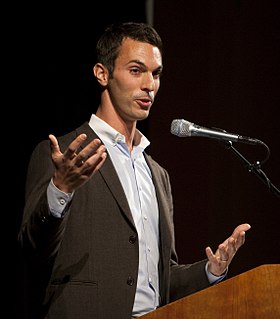A Quote by Bonnie Raitt
Quakers are known for wanting to give back. Ban the bomb and the civil rights movement and the native American struggle for justice - those things were very, very front-burner in my childhood, as were the ideas of working for peace and if you have more than you need, then you share it with people who don't.
Related Quotes
For black politicians, civil rights organizations and white liberals to support the racist practices of the University of Michigan amounts to no less than a gross betrayal of the civil rights principles of our historic struggle from slavery to the final guarantee of constitutional rights to all Americans. Indeed, it was practices like those of the University of Michigan, but against blacks, that were the focal point of much of the civil rights movement.
In less than a century we experienced great movement. The youth movement! The labor movement! The civil rights movement! The peace movement! The solidarity movement! The women's movement! The disability movement! The disarmament movement! The gay rights movement! The environmental movement! Movement! Transformation! Is there any reason to believe we are done?
We also have a piece about the Mayflower, but it's just a very different, very gritty, very character-driven version of why those people were on that boat and what the experience was like for them, emotionally, physically and spiritually, and also the Native Americans and what the state of Native American society was at that time.
We know that there were so many Japanese American soldiers in World War II who were fighting in Europe despite the fact that their families, their parents were back home in American prison camps. It's savagely ironic that between themselves and the African-American soldiers, who were also segregated and didn't see the fruition of the work the culminated in the Civil Rights Act until the '60s, that these American heroes and their stories are not well known; and the fact that the 442nd/100th became the most decorated unit in U.S. history.
I've always felt that homophobic attitudes and policies were unjust and unworthy of a free society and must be opposed by all Americans who believe in democracy. The civil rights movement thrives on unity and inclusion, not division and exclusion. My husband's struggle parallels that of the gay rights movement.



































